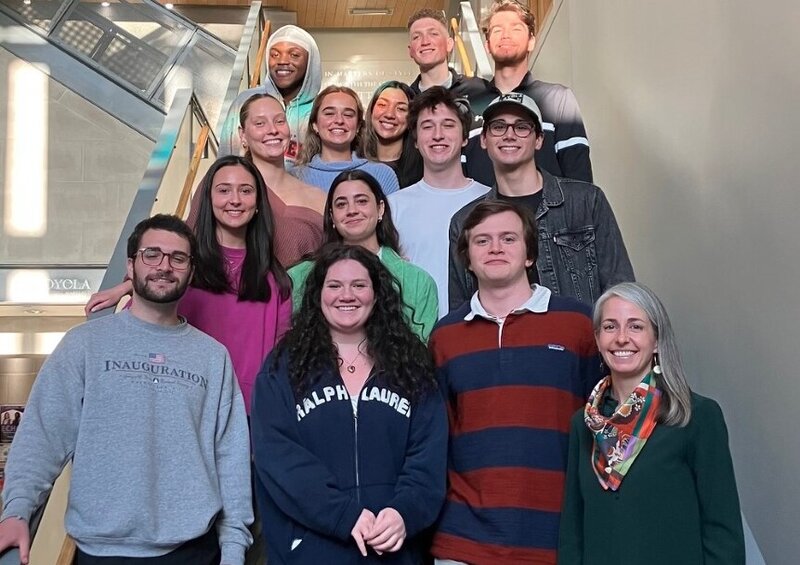Loyola University Maryland business students take awards at sustainability case competition

Three undergraduate student teams from Loyola University Maryland’s Sellinger School of Business and Management won five awards at the International Business Ethics and Sustainability Case Competition.
“This is a remarkable accomplishment, and I couldn’t be prouder of our students," said Astrid Schmidt-King, J.D., an assistant teaching professor of management and organizations who worked with the students. “Their innovative ideas, hard work, perseverance, goodwill, and teamwork are commendable and inspiring.”
Loyola’s teams competed against 30 universities from around the world and presented cases to be judged by executive panels in the form of 25-minute, 10-minute, and 90 second pitches. The competition was held in a hybrid format, both online and in-person at Loyola Marymount University.
The titles of the case studies Loyola teams entered in the competition were:
- “Food for Thought: Good Lunch Today for a Better Tomorrow,” 25-minute competition runner-up
- “Vacant Lots to Green Spots: Pocket Parks in Communities,” 25-minute competition winner and 10-minute competition winner
- “Are You Still Watching? Carbon Emissions Are Streaming,” 90-second competition winner and 10-minute competition runner-up
Throughout the spring 2023 semester, Loyola students prepared cases aimed at advancing sustainability while being legally, financially, and ethically sound.
"This experience made me realize what career path I want to pursue within the business field,” said Alyssa De la Cerda, ’26. “I really look forward to competing again next year.”
Additionally, each team of students was paired up with two business professionals. Some of the professionals were from Loyola’s Department of Management and Organizations’ Advisory Board and others were alumni and Sellinger supporters.
“While difficult at times, we were always helped by our professor and coaches, which made the process manageable and helped to improve our quality of work,” said Matthew Butler, ’23. “This also helped me grow professionally, as the whole process required intricate collaboration and communication within the team and from coaches.”